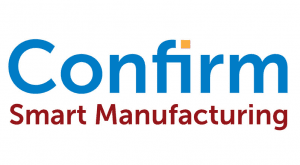Project Title: Self Conformable End of Arm robotic tooling
Job Description:
Science Foundation Ireland (http://www.sfi.ie/) recently approved funding for a dedicated research centre in the Smart Manufacturing. The Confirm Centre for Smart Manufacturing (https://confirm.ie/about/) is a research centre based at the University of Limerick with partner institutions Athlone Institute of Technology (www.ait.ie), Tyndall National Institute, University College Cork, Cork Institute of Technology, NUI Galway, Maynooth University, Limerick Institute of Technology and Tralee Institute of Technology. The Centre, which is co-funded from industry, brings together 42 industry partners and 16 international manufacturing centres of excellence to focus on the development of smart manufacturing for applications across Ireland’s leading industrial sectors. Confirm’s ambition is to become a world leader in smart manufacturing research and to enable Irish industry to fundamentally transform to a smart manufacturing ecosystem, delivering measurable and visible economic impact to Ireland. The successful candidate will work with a world-class team of academics, researchers and industry partners in a highly innovative and motivated environment.
In the past 50 years, there has been an exponential growth in the development of robotic systems – formulated primarily from a kinematic chain of rigid links which are capable of producing accurate, fast, and reliable motion. These conventional robotic automation machines are ideal for pre-programmed tasks to be executed within structured, unchanging manufacturing environments. Biology has long been a source of inspiration for researchers to make ever more capable machines. In particular, it has been observed that biological systems exploit the compliance and elasticity of soft body parts to reduce the complexity of interacting with environments and managing to adapt to changing conditions. The underlying principle in the design of soft robots is to build ‘mechanically intelligent’ machines by exploiting the material properties of soft materials.
Traditional robotic grippers are unable to elastically deform and adapt themselves to different shapes and sizes due to the mechanical properties of their hard components. They usually utilize mechanical joints in combination with active/passive compliance to exploit under-actuation and achieve adaptability. Soft robotic grippers use soft and/or flexible materials, which are able to undergo high deformation during interaction. This property, in combination with morphological features, helps the soft gripper to exploit passive deformation of the body adapting its shape to the object surface.
Researchers have used models to develop new approaches to low-level control, inverse kinematics, dynamic operations, and planning for soft robotic systems. An important aspect of these algorithms is the use of compliance when the robot interacts with its environment. Compliance allows the robot to adapt its shape and function to objects of unknown or uncertain geometry and is the basis for new control and planning algorithms for soft robots in the presence of uncertainly. For example, soft robots can execute pick and place operations without precise positioning or accurate geometric models of the object to be grasped. Robots made entirely from soft elastomer and powered by fluids (or gases) do not yet have well understood models or planning and control algorithms primarily because their intrinsic deformation is continuous, complex, and highly compliant.
The successful candidate will join an AIT confirm team of approximately 15 researchers and will have access to expertise in the wider €47 Million Confirm centre. The study is one of five PhD programmes co-sponsored by an Irish based multinational company who will assist in directing the projects.
Minimum Qualifications/Experience Necessary/Any Other Requirements:
First or high second (2.1) class honours degree in manufacturing engineering or a related discipline. Minimum IELTS 6.0 with no band less than 6.0 (for students with a degree from a non-English-speaking country. The candidate must be highly self-motivated and passionate about a career as a researcher.
Please note:
- Applications: Download Application Form at
https://www.ait.ie/research-and-innovation/research-vacancies/
- Submit your application to [email protected] in advance of closing date below (subject line must include “PhD By Research Confirm:_AIT3”)
| Informal Enquiries to: | |
| Name: | Dr Declan Devine |
| Department: | Materials Research Institute / Polymer Engineering |
| Email address: | [email protected] |
Closing date for receipt of completed applications is 17.00 on October 12th 2020








